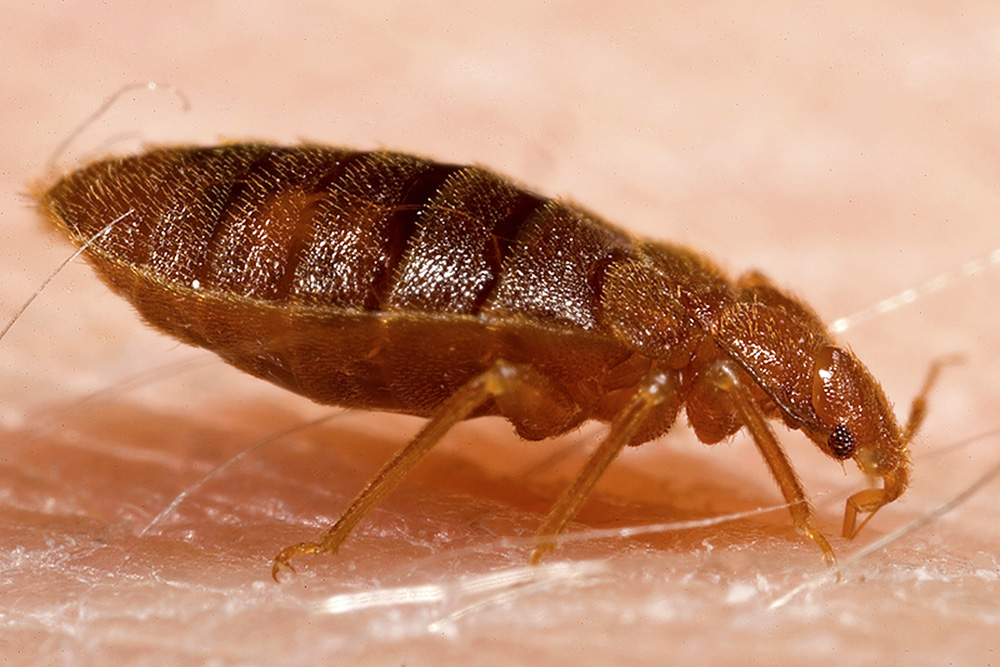Relied On Kings Bug Control Cincinnati OH: Expert Services
Relied On Kings Bug Control Cincinnati OH: Expert Services
Blog Article
Sorts Of Bug Control: Which Technique Is Right for Your Problem?
When encountered with a bug infestation, the choice of an ideal approach for parasite control is essential in successfully taking care of the scenario. From chemical therapies to organic remedies, there exists a variety of strategies that can be employed to address different sorts of pests. Each method features its own collection of advantages and factors to consider, making the decision-making procedure a nuanced one. Comprehending the nuances of each method and assessing their compatibility with the particular insect infestation at hand is essential for achieving lasting success in parasite administration. By checking out the different kinds of pest control approaches readily available, individuals can make informed choices customized to their special situations, guaranteeing a more effective and lasting result in insect eradication.
Chemical Parasite Control
Chemical insect control involves using synthetic or normally obtained chemicals to take care of and remove pest populations properly. This technique is generally utilized in farming, forestry, and residential settings to battle a variety of bugs, consisting of pests, rodents, and weeds. Using chemical pesticides can offer fast and targeted remedies to pest infestations, making it a prominent selection for numerous individuals and organizations.
One of the essential benefits of chemical parasite control is its ability to quickly get rid of parasites, decreasing the danger of damages to plants, building, and human health. By utilizing certain chemicals that target certain bugs, this approach can efficiently manage invasions while lessening injury to useful microorganisms and the atmosphere when used appropriately.
Nonetheless, using chemical pest control also raises issues regarding prospective negative impacts on non-target types, water resources, and human health and wellness. It is critical to follow safety standards, apply chemicals responsibly, and consider different parasite control approaches to lessen these threats and ensure lasting parasite monitoring methods.
Organic Bug Control
Organic insect control, also called biocontrol, makes use of living microorganisms to decrease and manage pest populaces normally. This method harnesses the power of nature to regulate bugs without the demand for synthetic chemicals. Biocontrol can involve the intro of natural enemies of the parasite types, such as predators, bloodsuckers, or microorganisms, to reduce insect populaces. By utilizing the pest's all-natural predators or virus, organic bug control offers a sustainable and ecologically friendly option to pest management.

Mechanical Pest Control
Utilizing physical and manual approaches to handle insect populations, mechanical pest control supplies a different technique that does not depend on the use of living organisms or artificial chemicals. This technique involves making use of obstacles, traps, or other tools to literally discourage or remove bugs. By blocking pest access factors or establishing traps to capture them, mechanical insect control can effectively lower invasions without introducing chemicals right into the atmosphere.
One typical instance of mechanical bug control is the use of mesh displays on doors and home windows to avoid insects from getting in buildings. This simple yet effective method works as a physical barrier, maintaining insects out while allowing for appropriate ventilation. Furthermore, devices like mousetraps, fly swatters, and ultrasonic repellents drop under the mechanical parasite control group.
While mechanical insect control approaches can be labor-intensive and need normal tracking and upkeep, Kings cincinnati pest control companies they provide a lasting and environmentally pleasant solution for handling parasite invasions. By incorporating different mechanical methods, homeowner can produce a thorough insect control method that minimizes reliance on chemical pesticides.
Physical Parasite Control

Some typical physical insect control methods consist of the usage of barriers such as internet or screens to prevent parasite entrance, traps to record and eliminate insects, and hand-picking to literally get rid of insects from plants or frameworks. In addition, methods like heat therapies can be used to regulate bugs like bed bugs by elevating the temperature to levels that are deadly to the insects.
Physical pest control is specifically helpful in incorporated bug management (IPM) approaches, where several insect control approaches are integrated for reliable insect management while decreasing making use of chemicals. By making use of physical insect control strategies, individuals can properly attend to parasite infestations with marginal environmental effect.
Integrated Parasite Administration
When applying physical insect control approaches as part of insect management strategies, Integrated Bug Monitoring (IPM) emerges as a thorough strategy that leverages numerous strategies to efficiently manage pest populaces. IPM concentrates on long-term prevention of parasites with a mix of organic, cultural, physical, and chemical tools tailored to certain parasite issues. By integrating several control methods, IPM intends to minimize the risks connected with bugs while additionally reducing reliance on chemical services.
One secret facet of IPM is the focus on surveillance and assessing pest populations to identify the most proper control techniques. This aggressive strategy permits very early treatment and targeted approaches, leading to more efficient pest management. Additionally, IPM promotes environmentally pleasant techniques by focusing on non-chemical control approaches and just making use of chemicals as a last resource.
Conclusion

By using the bug's all-natural predators or microorganisms, organic parasite control provides a sustainable and ecologically pleasant service to pest administration. - Kings cincinnati pest control
Using physical and hands-on approaches to take care of pest populations, mechanical pest control offers an alternative method that does not depend on the use of living organisms or synthetic chemicals.An effective technique to taking care of bug populations without depending on chemical or biological methods entails the usage of physical bug control methods.When executing physical insect control techniques as component of parasite management methods, Integrated Bug Management (IPM) arises as a detailed approach that leverages numerous methods to efficiently control pest populaces. Chemical bug control includes the use of chemicals, biological pest control makes use of all-natural predators, mechanical parasite control includes physical barriers, physical parasite control includes trapping or getting rid of bugs, and integrated parasite administration combines numerous techniques for a holistic technique to pest control.
Report this page